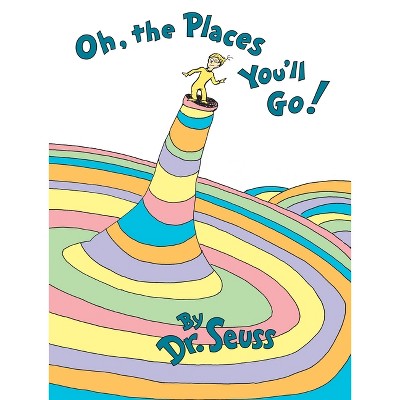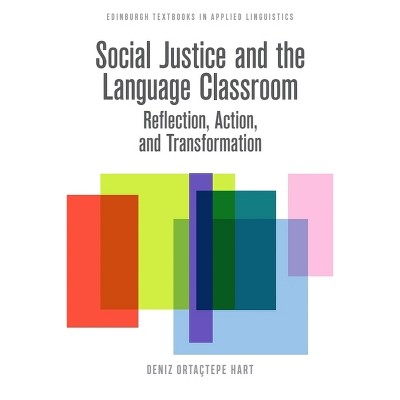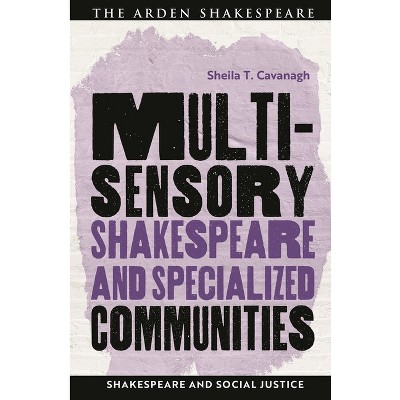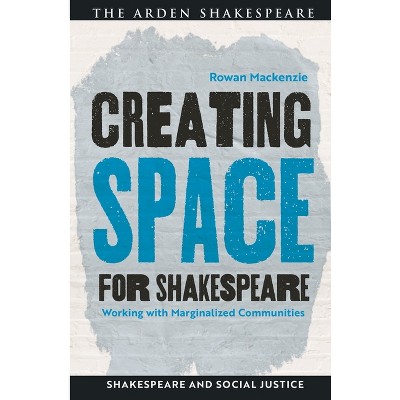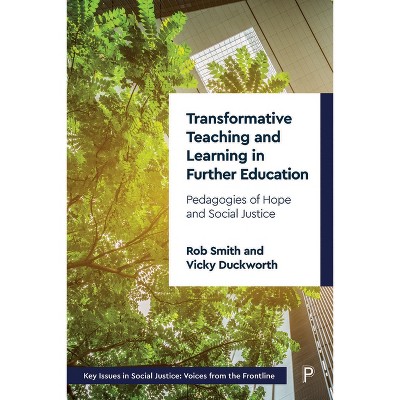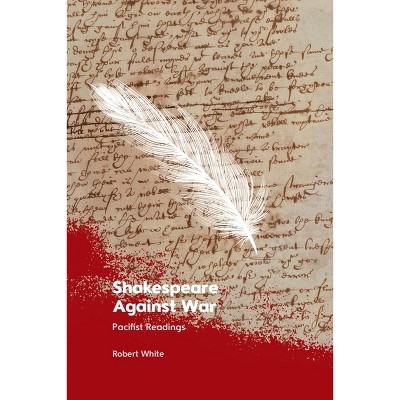Teaching Social Justice Through Shakespeare - by Hillary Eklund & Wendy Beth Hyman (Paperback)

About this item
Highlights
- New ideas for teaching contemporary social justice through Shakespeare and Renaissance literatureDescribes innovative and portable teaching methods informed by recent scholarship in early modern literature, cultural studies, and critical pedagogyOffers strategies for effective teaching and advocacy amidst the growing cultural and economic complexities of higher educationDemonstrates the relevance of historical literary study to contemporary cultural conversations, especially those about social justiceHistoricizes the malicious "whitening" of Shakespeare and European culture, recognizing instead multiple, multicultural, accessible ShakespearesPresents Shakespeare's plays as a common corpus of great value to democratic conversations in widely divergent contexts Gives educators language for promoting the virtue of humanistic inquiry and when higher education is on the defensiveThis book is for teachers who want to heighten the intellectual impact of their courses by using their classrooms as a creative space for social formation and action.
- About the Author: Hillary Eklund is Provost Distinguished Professor, Associate Professor of English, and Chair of the department at Loyola University New Orleans.
- 288 Pages
- Literary Criticism, Shakespeare
Description
About the Book
This book provides diverse perspectives on Shakespeare and early modern literature that engage innovation, collaboration, and forward-looking practices.
Book Synopsis
New ideas for teaching contemporary social justice through Shakespeare and Renaissance literature
Describes innovative and portable teaching methods informed by recent scholarship in early modern literature, cultural studies, and critical pedagogyOffers strategies for effective teaching and advocacy amidst the growing cultural and economic complexities of higher educationDemonstrates the relevance of historical literary study to contemporary cultural conversations, especially those about social justiceHistoricizes the malicious "whitening" of Shakespeare and European culture, recognizing instead multiple, multicultural, accessible ShakespearesPresents Shakespeare's plays as a common corpus of great value to democratic conversations in widely divergent contexts Gives educators language for promoting the virtue of humanistic inquiry and when higher education is on the defensiveThis book is for teachers who want to heighten the intellectual impact of their courses by using their classrooms as a creative space for social formation and action. Its twenty-one chapters provide diverse perspectives on Shakespeare and early modern literature that engage innovation, collaboration, and forward-looking practices. They model ways of mobilizing justice with early modern texts and claim the intellectual benefits of integrating social justice into courses. The book reconceives the relationship between students and Renaissance literature in ways that enable them - and us - to move from classroom discussions to real-life applications.
From the Back Cover
New ideas for teaching contemporary social justice through Shakespeare and Renaissance literature This book is for teachers who want to heighten the intellectual impact of their courses by using their classrooms as a creative space for social formation and action. Its twenty-one chapters provide diverse perspectives on Shakespeare and Renaissance literature that engage innovation, collaboration, and forward-looking practices. They model ways of mobilizing social justice with early modern texts and claim the intellectual benefits of integrating social justice into courses. The book reconceives the relationship between students and the Renaissance in ways that enable them-and us-to move from classroom discussions to real-life applications. Teaching Social Justice Through Shakespeare: Why Renaissance Literature Matters Now presents - Innovative teaching methods informed by recent cross-disciplinary scholarship - Strategies for effective advocacy amidst the growing complexities of higher education - Discussions of the relevance of historical literary study to contemporary cultural conversations - Multiple, multicultural, and accessible Shakespeares - Critical connections of Shakespeare's plays to democratic conversations and social justice Hillary Eklund is Provost Distinguished Professor, Associate Professor of English, and Chair of the department at Loyola University New Orleans. Wendy Beth Hyman is Associate Professor of English and Comparative Literature at Oberlin College.Review Quotes
Teaching Social Justice Through Shakespeare felt urgently needed in 2019. Writing this review in the summer of 2020 [...] the urgency feels so much the greater. Eklund and Hyman have assembled an extraordinary array of essays, ones that draw Shakespeare into discussions of (among other things) race, gender and gender identity, disability, incarceration, and environmental devastation.--James Kuzner "Journal for Early Modern Cultural Studies"
Eklund and Hyman brilliantly demonstrate how Shakespeare can be an instrument of social justice, providing a common discourse that unites communities, yet one that can defamiliarize and disrupt current systems of power and knowledge. If Shakespeare's work has sometimes been enlisted as a vehicle of structural oppression, the essays in this volume reveal its value for pedagogies that resist, transform, and impel action.-- "Karen Raber, University of Mississippi"
It would be difficult to overstate the importance of Hilary Eklund and Wendy Beth Hyman's Teaching Social Justice Through Shakespeare: Why Renaissance Literature Matters Now. This collection will no doubt serve as an essential resource to any instructor who wants to restructure a Shakespeare course in foundational ways. [...] This is the most timely and relevant book that professors can read right now.--Joanne Diaz "Medieval & Renaissance Drama in England"
This collection inspires the possibility that we might make new kinds of common ground from Shakespeare by creating learn-ing experiences for our students that help them build just relations to others around the planet. A matrix of globally connected class-rooms could help students understand and participate in social justice projects that they could perhaps not even imagine before our classrooms begin to serve them as portals to the world--portals from which, with new "terrestrial" pedagogies, pedagogies of grace, we may have some hope of saving one another, and the planet.--Carolyn Sale "Shakespeare Studies"
About the Author
Hillary Eklund is Provost Distinguished Professor, Associate Professor of English, and Chair of the department at Loyola University New Orleans. She is the author of Literature and Moral Economy in the Early Modern Atlantic: Elegant Sufficiencies (Ashgate, 2015) and the editor of Ground-Work: English Renaissance Literature and Soil Science (Duquesne University Press, 2017). She has essays published or forthcoming in journals such as Shakespeare Studies, SEL, and Criticism, and in essay collections on a variety of topics from Shakespeare and Spenser to the environmental humanities. Her book in progress investigates the representations, uses, and controversies surrounding wetlands in the early modern period.
Wendy Beth Hyman is Associate Professor of English and Comparative Literature at Oberlin College. She is author of the Impossible Desire and the Limits of Knowledge in Renaissance Poetry (Oxford UP, 2019), and editor of The Automaton in English Renaissance Literature (Ashgate 2011). She has published essays on early modern mechanical birds, insect poetry and early modern microscopy, the inner lives of Renaissance machines, physics and metaphysics in early modern lyric, metaphoricity and science, jacquemarts and Jack Falstaff, Spenser's Faerie Queene, Nashe's Unfortunate Traveller, and the pedagogy of book history. Professor Hyman is at work on a second monograph, attending to the relationships among mimesis, myth, and other kinds of literary fictions in Shakespearean and Spenserian romance.
Shipping details
Return details
Trending Fiction

